Unframed | From the Logic of the Favelas to a New Urban Typology
The thesis project “Unframed” was developed following two different computation strategies. In the first instance, an empirical analysis was made of the Favela Rocinha in Rio de Janeiro in search of morphological relationships that are implicit in it’s urban development. In this way, different architectural modules were established, with which it is commonly built on the site, to later develop aggregation rules and to establish different global models and specific rules that give way to the next part of the thesis. In the second part of the thesis, which is located in Barcelona, ??we started by defining a specific site (9 built blocks) which would become the field where 11 different types of architectural typologies will be added according to the rules previously defined in the study of aggregation of the first part.
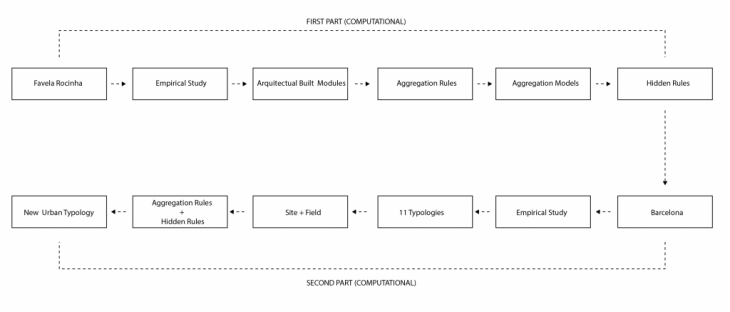
First Part: Empirical Study of Favela Rocinha
1.0 Empirical study
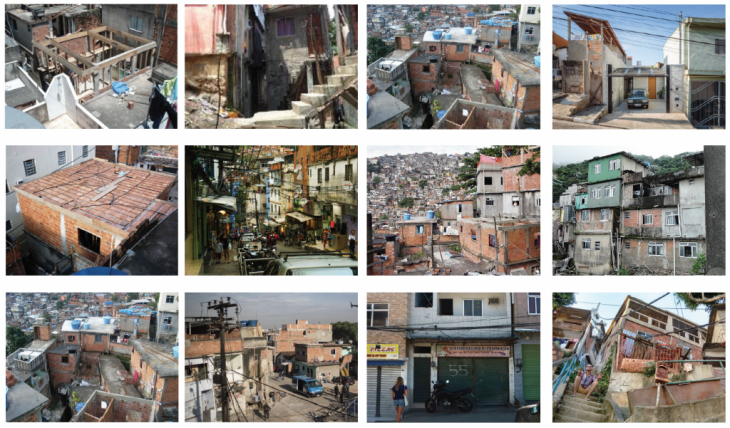
2.0 Architectural Modules
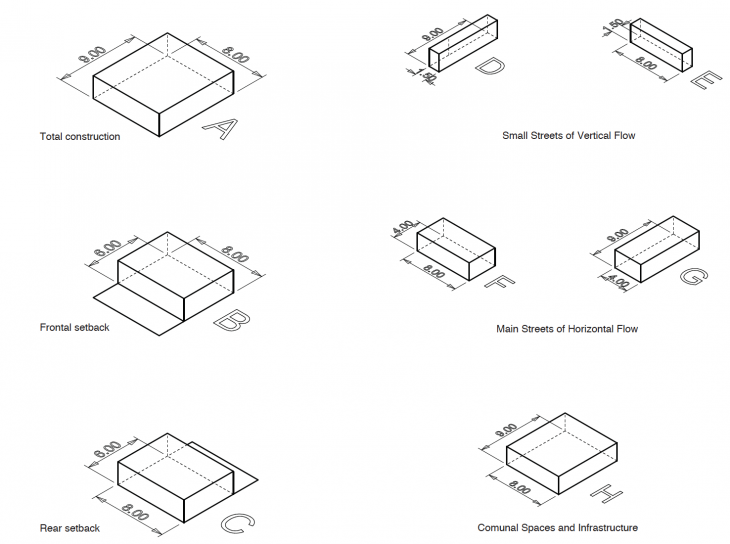
3.0 Rules of aggregation
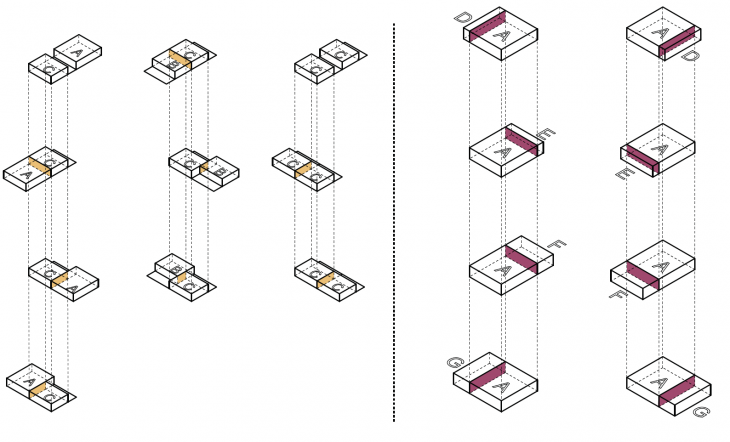
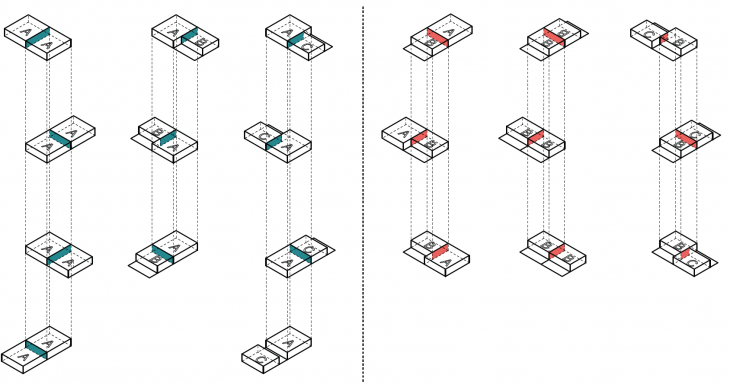
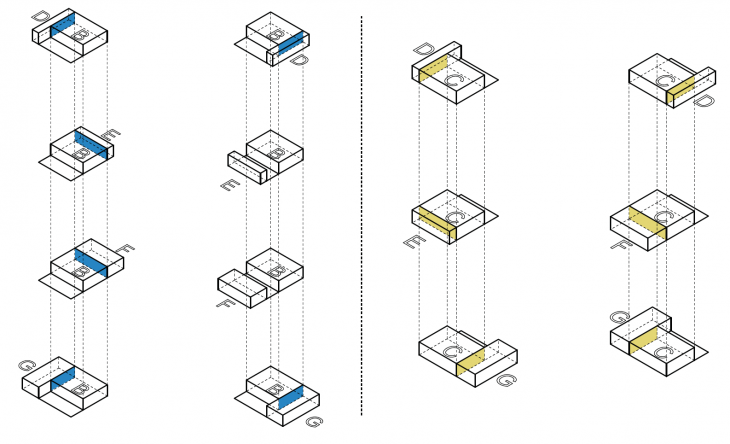
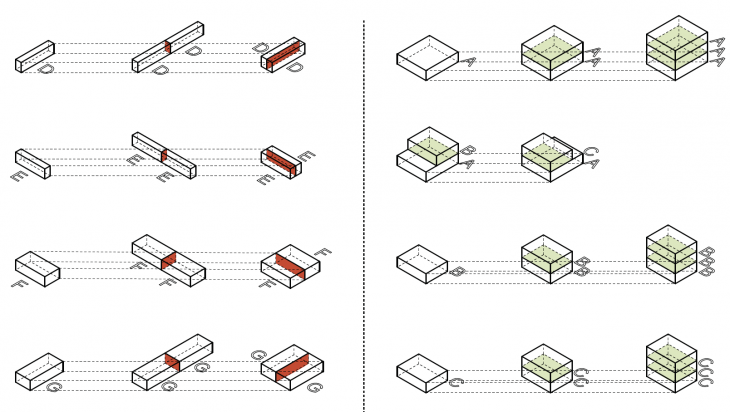
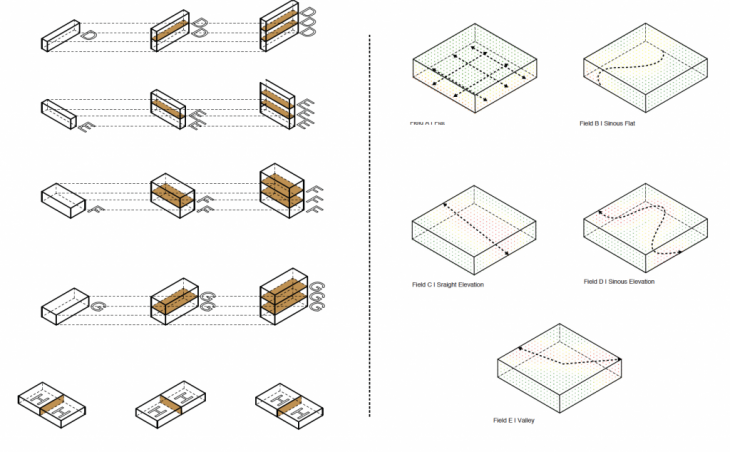
4.0 Aggregation models
5.0 Unhidden rules
MULTILEVEL DEVELOPING LAND
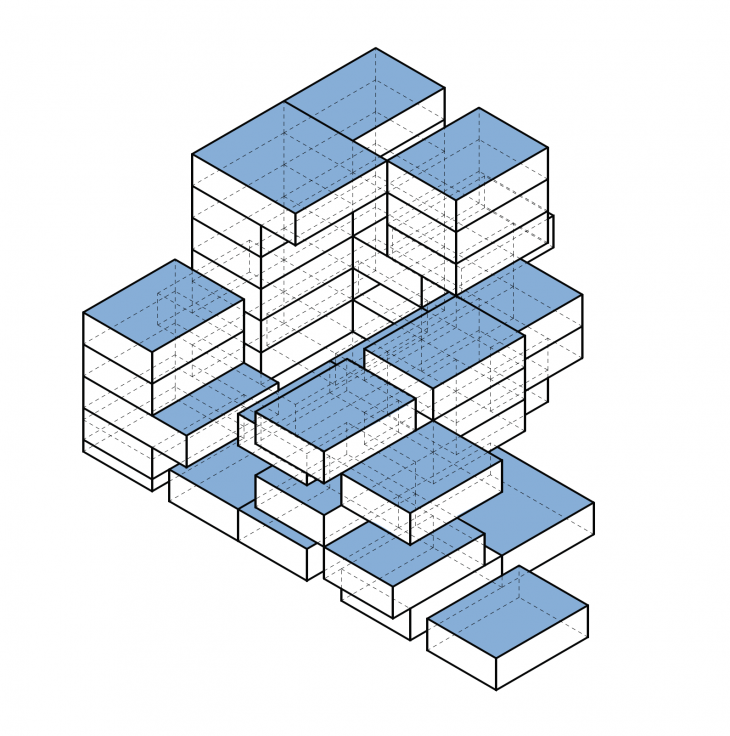
MULTILEVEL VOLUME UNIFICATION

PRIVATE AS INFRASTRUCTURE
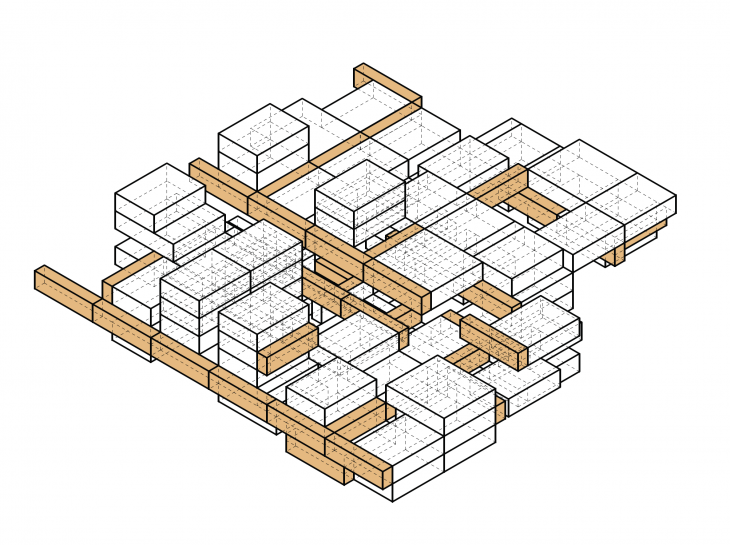
COMUNAL VOID AS HIERARCHICAL CENTER
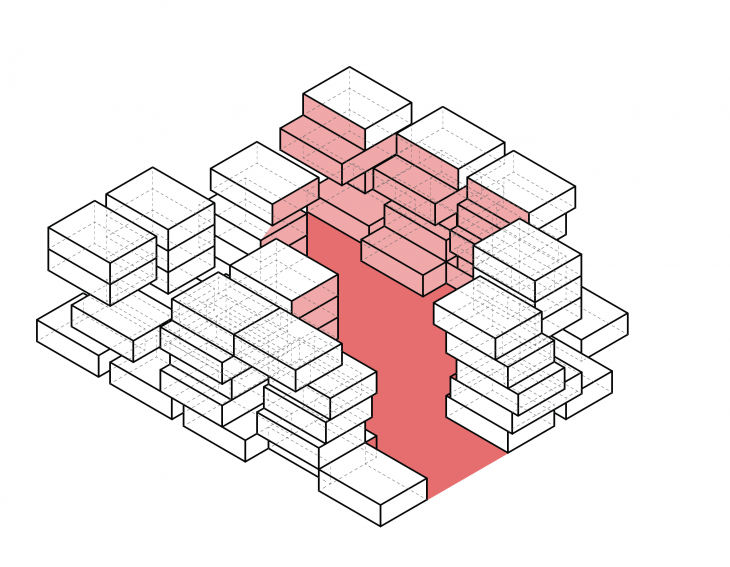
BUILDING TYPOLOGY VARIATIONS
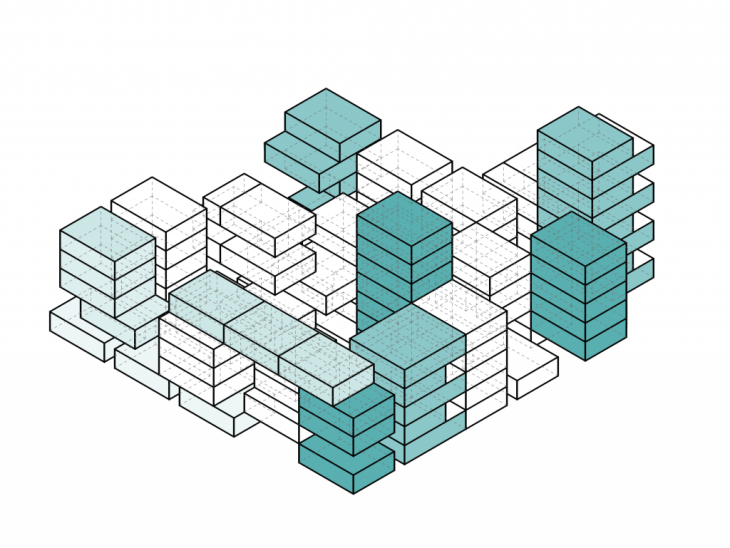
Second Part: Rules of aggregation within the built context
1.0 Field

2.0 Typologies
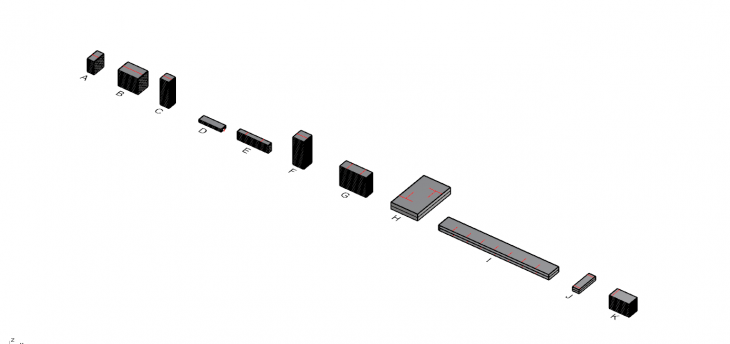
3. Translator vector + Rotation
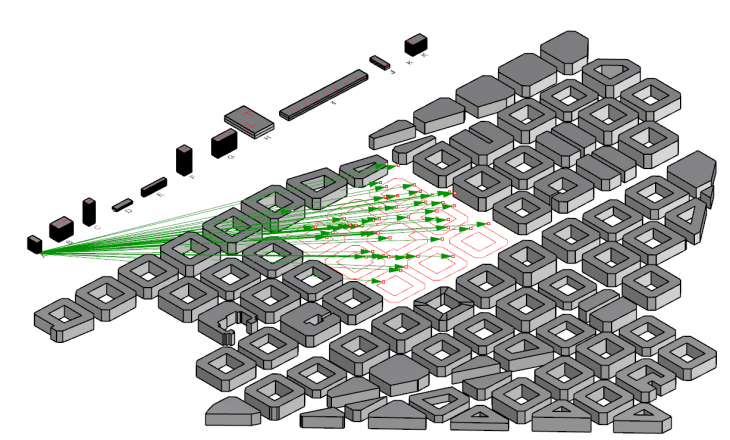
3.1 Translator Vector on 11 Typologies + Structural discharge to the ground (columns)
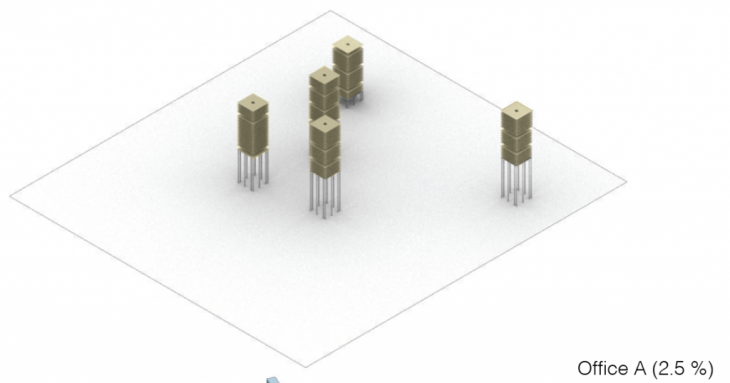
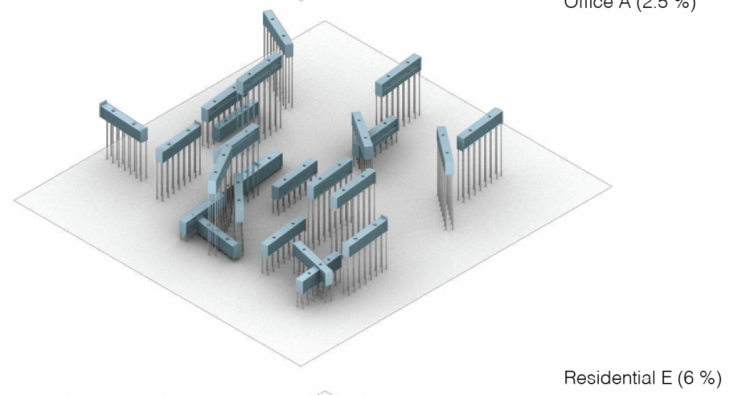
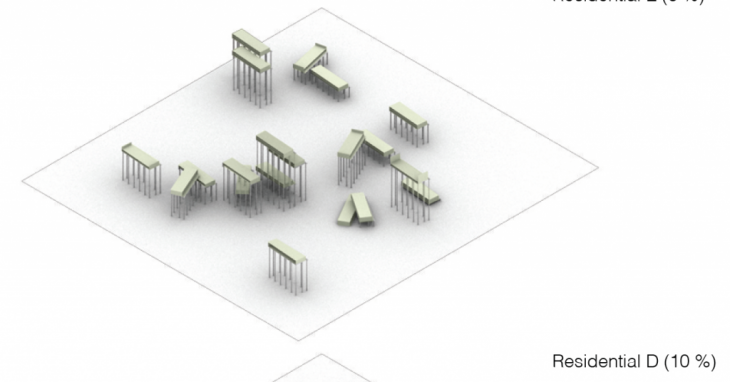
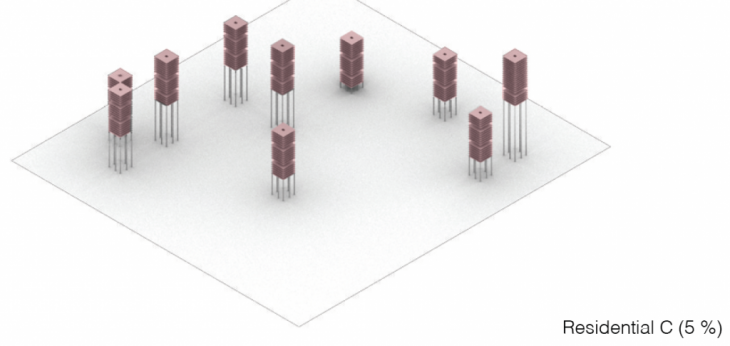
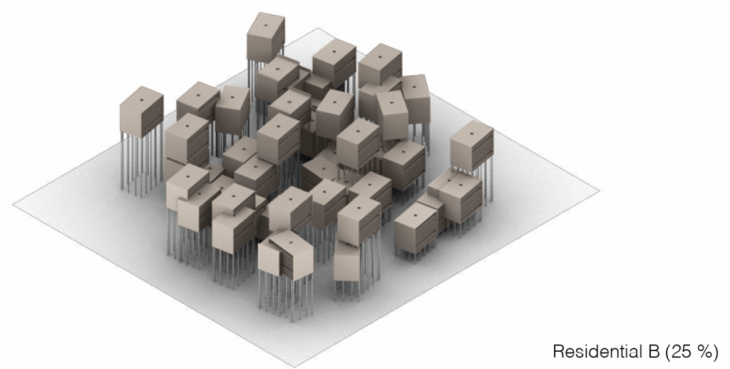
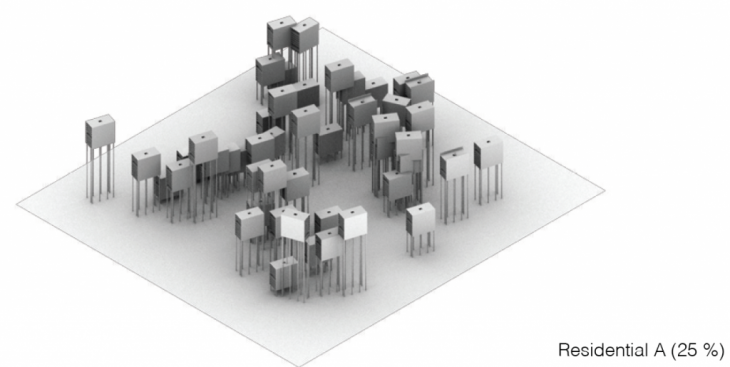

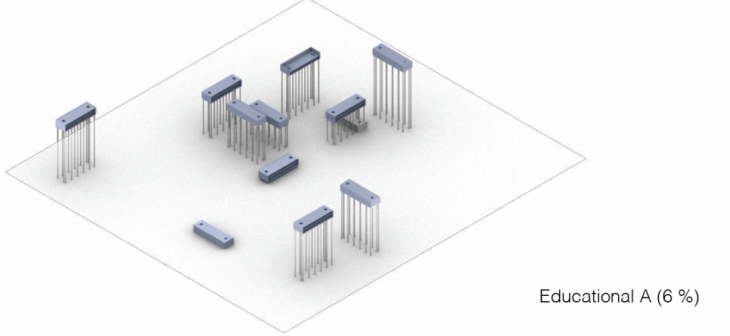
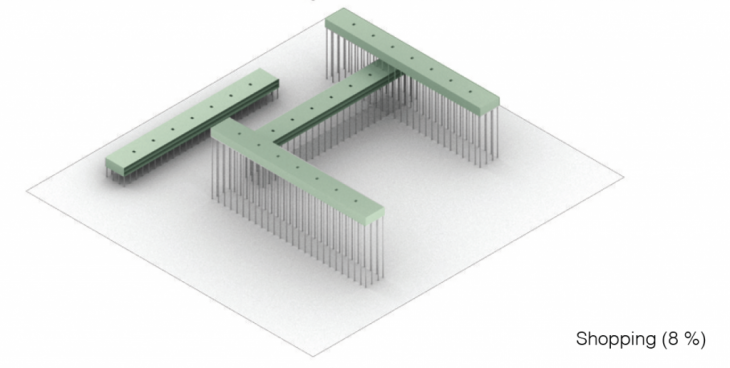
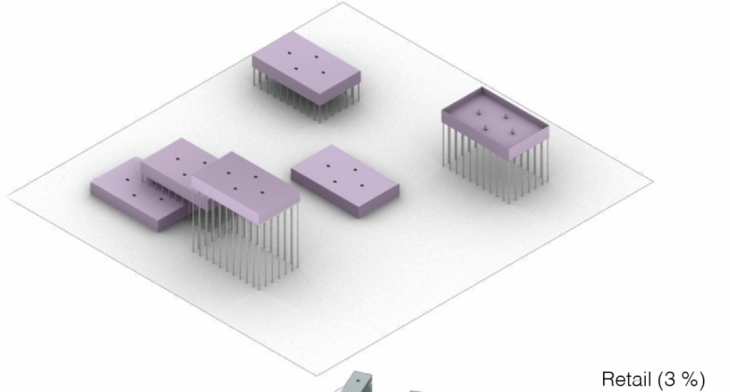
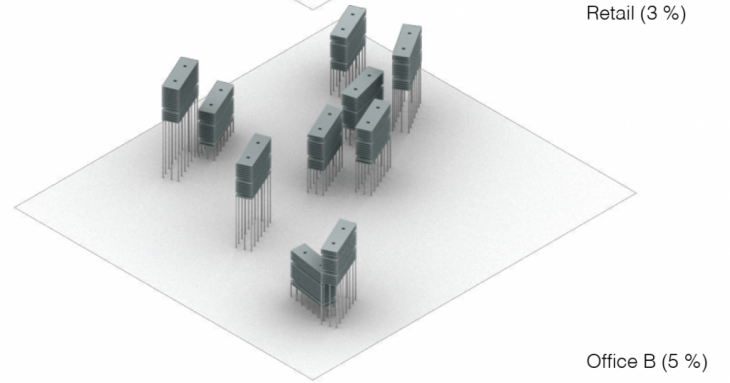
4.0 Merge of typologies using computational tools
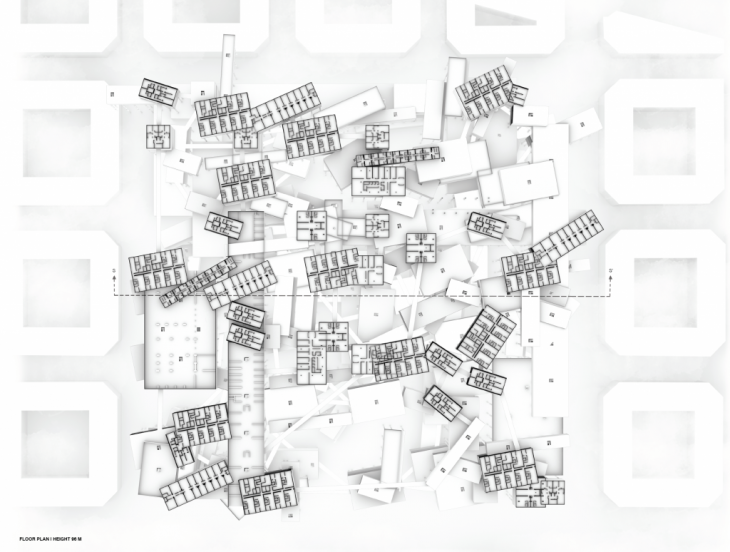

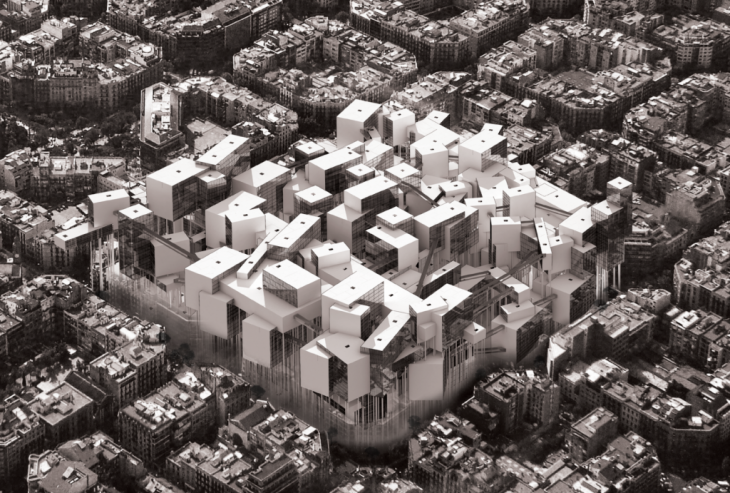
Thesis Project by Cesar Arroyo
